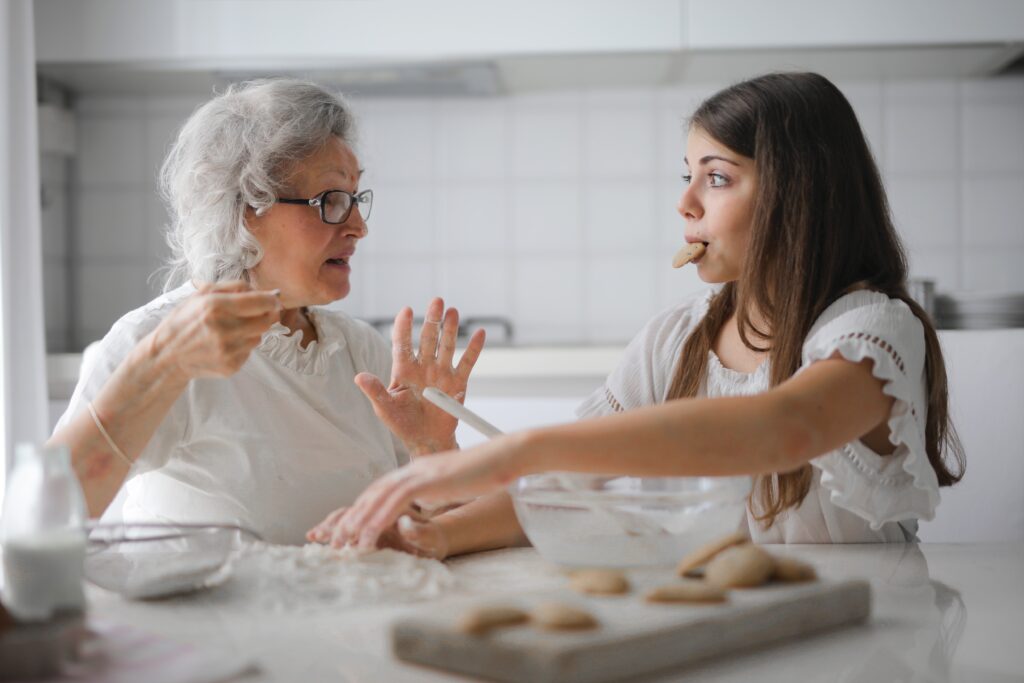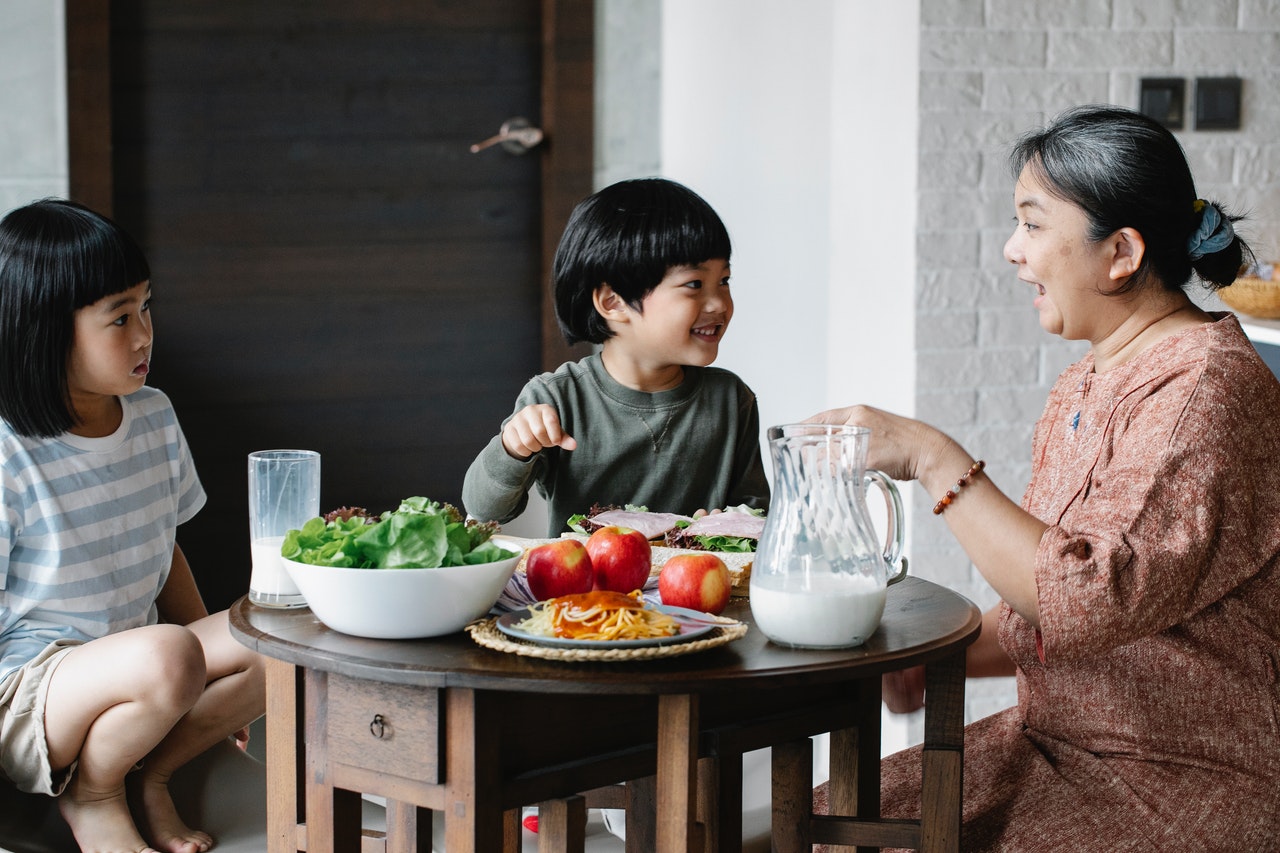Please note that the information featured in this blog is to be treated as exactly that and not professional nutritional advice. For everything else, please consult your local nutritionist.
As we become older, it’s common for our appetite to decrease, as well as our sense of taste and smell. This will cause you to eat less which will put you at risk of missing out on all the essential nutrients that your body will need to stay healthy.
To prevent any of this from happening, it’s important to ensure you are eating healthy as part of your daily routine.
With this in mind, we’d love to share with you five healthy eating tips for the elderly that we think you’ll enjoy.

Enjoy Eating With Other People
The benefits of being with others and eating together become more important than ever for both our appetites and our mental health.
When possible, try and share a meal with your family members, friends, or neighbours. It doesn’t matter if it’s the main meal or a cup of tea – it all counts!
This will keep your mealtimes fun and enjoyable, and also adds a social element too.
Prepare an Easy & Tasty Meal
If you’re finding it difficult to cook or get to the shops in general, we’ve got a few ideas to help make sure you keep eating regular meals.
Engaging a home care Melbourne service can be handy as they will be able to help you with your grocery shopping, particularly if transport is proving to be an issue.
With regards to cooking the meal itself, we believe it’s a good idea to keep your kitchen well-stocked with food items for meals that are easy to prepare such as rice, tuna, frozen vegetables, and healthy pre-made meals.
Eating Enough Protein
Getting enough protein into your body is important as it uses it to do important repair work such as building and maintaining muscles, repairing skin, and helping fight off infection.
Good sources of protein for the elderly include tofu, eggs, nuts, lean meat, milk, cheese, yoghurt, and beans, so be sure to include these in your diet.
Try Eating Smaller Meals More Often
Losing your appetite in your later years is common. We’d suggest eating 5-6 small meals rather than a couple of large meals at breakfast, lunch, and dinner to ensure that you are still getting the nutrients you need every day.
If you’re using your appetite as a signal to eat, it might be helpful to set an alarm to sound every two-to-three hours to remind you to eat.
Repetition is always useful when trying to develop good habits in a daily routine, so eating will eventually become a natural part of your day rather than a chore that needs to be done.

Drinking Water Regularly
It can be really easy to forget to drink water each day but it’s incredibly important to do so to remain hydrated; especially when the weather becomes warmer.
If you do happen to forget to drink water at regular intervals throughout the day, we’d recommend keeping a water bottle or jug somewhere nearby to act as a reminder to drink.
These are our five healthy eating tips for the elderly but we know there are plenty more to consider. Do you have any that you’d like to share with us? If you do, be sure to comment below.
If you would like to find out more about how our home care packages can support you, please click here to leave an enquiry or call us on (03) 8720 1338.




